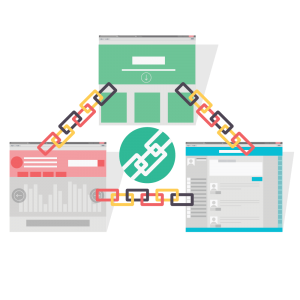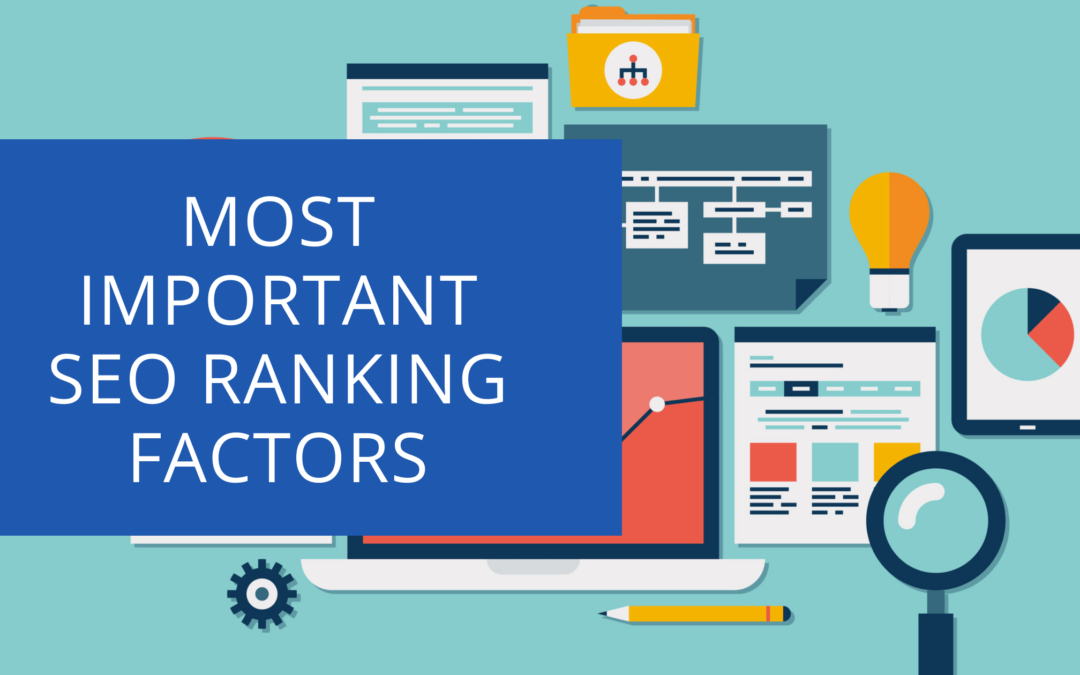Search engines are constantly changing what they use to rank websites in their search engine results pages (SERPs) to deliver the best results for the user. This makes it difficult for website owners to know which SEO ranking factors are most important.
Contents
How does Google rank web pages?
To understand which SEO ranking factors are most important, it is first necessary to understand how Google ranks web pages. Google’s search engine algorithm uses a combination of over 200 signals to rank websites. These signals can be divided into two categories: on-page factors and off-page factors.
On-page factors are the elements of a website that are under the control of the website owner. These include the title tag, meta description, heading tags, content, images, and anchor text.
Off-page factors are the elements of a website that are outside of the control of the website owner. These include backlinks and citations.
7 Most Important Ranking Factors
The following are the seven most important SEO ranking factors:
Keyword Optimisation
Keywords are the words and phrases that people type into a search engine to find information. By optimising your website around the keywords that your target market is searching for, you can improve your website’s ranking in SERPs.
 To optimise your on-page SEO for keywords you should use the following guidelines:
To optimise your on-page SEO for keywords you should use the following guidelines:
- Use keywords in titles: the title of your webpage is one of the most important on-page SEO factors. By including your target keywords in the title, you can improve your website’s ranking for those terms.
- Use keywords in the meta description: the meta description is the short snippet that appears under the title in SERPs. Including your target keywords in the meta description can improve your ranking for those terms.
- Use keywords in the first sentence: first sentences are also an important on-page SEO factor. Including your target keywords in the first sentence can improve your ranking for those terms.
- Use LSI Keywords: The use of Latent Semantic Indexing (LSI) keywords means that you include synonyms and closely related words to help search engines understand what your page is about even if they do not directly use the words.
- Use keywords in your content: The more of your target keyword that you include on a landing page, the higher it will rank in SERPs for those terms.
- Keyword density: Keyword density is how many times a word or phrase appears on-page compared to all other words used. The more times your target keyword appears on a single page, the higher it will rank in SERPs for that term.
- Keyword research: Keywords are the most important element of any marketing campaign because they help you to identify what people want and need. Before creating or improving content, research keywords relevant to your business using tools such as Google AdWords Keyword Planner, Google Trends or Semrush.
- Use headings and subheadings: By using headings and subheadings on a page, you guide the user through your content. This helps search engines understand what your pages are about even if they do not directly use keywords in their code.
- Use synonyms: Using phrases with similar meanings can help to ensure that all relevant terms related to the topic appear on-page and makes the page extra relevant without keywords stuffing.
- Optimise images: Images can also be optimised for search engines by using keywords in the file name and adding alt text.
Backlinks
Backlinks are hypertext links to your website that come from web pages elsewhere on the Internet. Backlinks play a major role in ranking web pages because search engines favor sites with good backlink profiles.
A high-quality external link is often worth more than a higher number of lower-quality links, so it’s essential to build backlinks from websites with high levels of trust and authority.
Here are some link building guidelines for where to get links:
- Authoritative websites: Links from high-quality, authoritative websites are the most valuable for improving your website’s ranking.
- Industry directories: Links from industry directories can help to improve your website’s ranking because they are often considered high-quality and relevant.
- Social media: Links from social media platforms such as Twitter, Facebook, and LinkedIn can also help to improve your ranking.
- Relevant websites: When looking for websites to get links from, you should look for industry-relevant sites.
- Relevant directories: Directory websites are a great place to find high-quality links that are relevant to your business.
- Guest blogging: Guest blogging is a great way to get links from high-quality, authoritative websites.
- Niche edits: Link inserts are a great way to get relevant links from pages that have age and signals.
- PBN links: Links from PBNs allow you to create your own authoritative and relevant sites to link back to your site.
Internal Links
Internal links are hypertext links from one page on your website to another page on your website. Internal linking is an important part of SEO because it helps search engines understand the structure and hierarchy of your website.
 By using internal links, you can:
By using internal links, you can:
- Pass link juice: By including a link from one high-quality page to another high-quality page, you pass “link juice” or authority to that page.
- Improve site navigation: Internal links help to improve site navigation by guiding users through your website’s content.
- Boost SEO ranking: Including relevant keywords in internal links can help to boost your website’s SEO ranking for those terms.
Search Intent
The best way to understand what people are looking for is to think about their search intent. When someone searches for a particular keyword, they are usually looking for one of three things:
- Informational content: People who are looking for informational content want to learn more about a topic. They might not be ready to buy anything yet.
- Commercial intent: People who are looking for commercial intent are usually ready to buy something related to the topic that they’re searching for.
- Transactional content: People who are looking for transactional content have already decided what they want and are just looking for the best deal.
Once you understand what kind of content your target audience is looking for, you can create pages that fulfil their needs.
Mobile Friendliness
Since more and more people are using their mobile devices to search for information, it’s important to make sure that your website is mobile-friendly.
Google has announced mobile-friendliness will be a ranking factor in its algorithm. This means that websites that are not optimised for mobile devices will rank lower than those that are.
 There are a few things you can do to make your website more mobile-friendly:
There are a few things you can do to make your website more mobile-friendly:
- Use a responsive design
- Make sure all images and text are sized appropriately for smaller screens
- Ensure buttons and links are easy to click on mobiles
SSL
Google announced that they will start to rank websites higher if they are served over a secure connection.
Search engines encrypt the links between their server and your website so hackers cannot see what pages you have on offer, which can help provide peace of mind for customers who want to do business with you online.
Site Speed
Google has announced that site speed will be a ranking factor in its algorithm. This means that websites that are slow to load will rank lower than those that are fast.
There are a few things you can do to improve your website’s loading speed:
- Optimise images: Use a tool such as TinyPNG to optimise images for web use.
- Minimise the number of redirects: Redirects can slow down your website’s loading time. Try to keep the number of redirects to a minimum.
- Use a content delivery network (CDN): A CDN will help speed up the loading of your website’s content.
- Enable caching: Caching will help to keep static files on your server, which will speed up the loading of your website.
- Minimise the number of scripts and plugins you use: Scripts and plugins can slow down your website’s loading time. Try to use as few as possible.
- Compress files with gzip compression: Gzip compression will help compress your website’s content so that it takes up less bandwidth.
SEO Ranking Factors FAQ
What are the most important SEO ranking factors?
In a nutshell, the most important ranking factors are optimised content, backlinks, and site speed.
How can I improve my website’s loading speed?
There are a few things you can do to improve your website’s loading speed, including optimising images, minimising redirects, using a CDN, caching static files, and compressing files with gzip compression.
What is mobile-friendliness?
Mobile-friendliness is the term used to describe a website that is optimised for mobile devices. This means that the website will be easy to navigate and use on smaller screens.
What is SSL?
SSL (Secure Sockets Layer) is a protocol that helps protect information sent between a user’s computer and a website. It creates an encrypted connection so hackers cannot see what pages are being visited on your website.
Google has announced that they will start to rank websites higher if they are served over a secure connection.
What are the benefits of having a secure website?
The benefits of having a secure website include improved customer confidence, increased security, and slightly higher rankings on Google.
Can I use a free SSL certificate?
Yes, there are a few free SSL certificate providers available, such as Let’s Encrypt and CloudFlare.
We Offer SEO Services Nationwide
- Milton Keynes: https://mediakynect.co.uk/seo-milton-keynes/
- Leeds: https://mediakynect.co.uk/seo-leeds/
- Burnley: https://mediakynect.co.uk/seo-burnley/
- Sussex: https://mediakynect.co.uk/seo-sussex/
- York: https://mediakynect.co.uk/seo-york/
- Warwickshire: https://mediakynect.co.uk/seo-warwickshire/
- Whitby: https://mediakynect.co.uk/seo-whitby/
- Durham: https://mediakynect.co.uk/seo-durham/
- Lancashire: https://mediakynect.co.uk/seo-lancashire/
- Leicester: https://mediakynect.co.uk/seo-leicester/
Conclusion
SEO is a complex process, and there are many factors that can affect your website’s ranking. However, by following the tips in this article, you can give your website the best chance of ranking high in Google’s search results.

